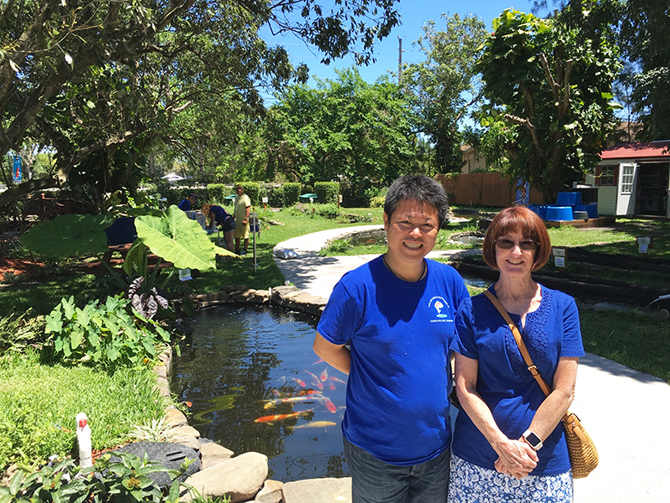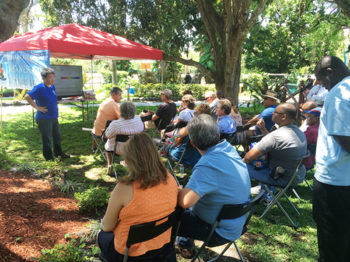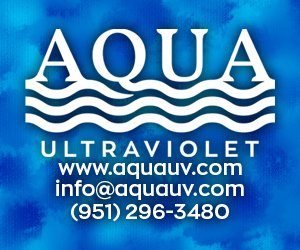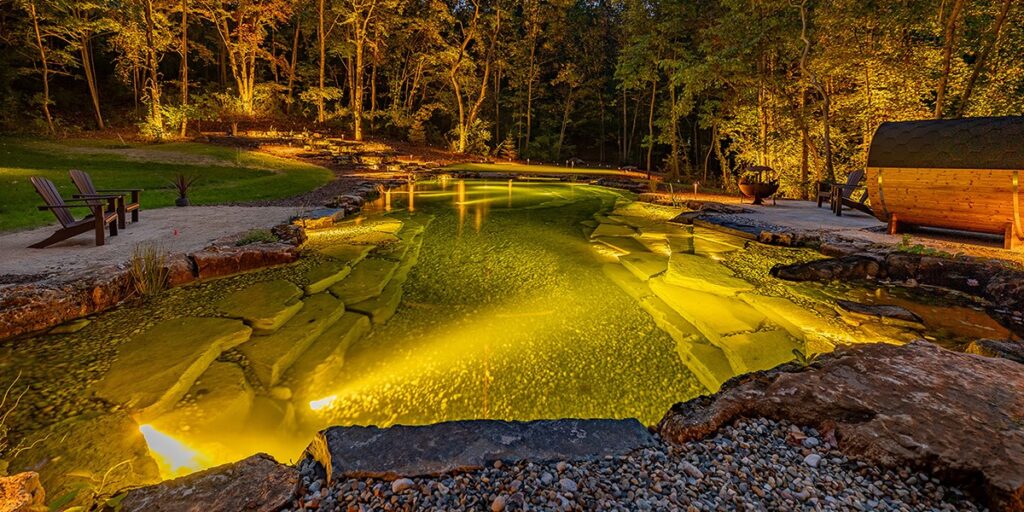
Do you have a retail store but do not carry koi for sale? You should, and here is why.
Koi fish, especially Japanese koi fish, are considered living art work. The beautiful koi fish will elevate the status of your store and attract a wider range of customers.
Do you build ponds and do not carry koi fish for sale simply because you do not have a place to stock them? You should still consider offering them to your clients. Many businesses offer pond packs and direct drop shipments to your customers.
If you build a tranquil space for your clients, you should add colors for your clients, too, in the form of koi fish. You will also find that you can get higher-end clients who want high-quality koi.
My name is Taro Kodama, and my family farm has been offering Japanese koi fish for sale in the United States for over 50 years. We have perfected the model of koi reselling, and if you are interested, we want to help you feel comfortable joining us in our wholesale koi program.
When ordering wholesale koi, there are some key questions to consider.
- Should I offer my customers domestic koi or Japanese koi?
- Where do I buy the koi?
- How do I pick the right supplier?
- Should I quarantine the koi?
- What are some tips for wholesale?
What is the best choice for my clients — domestic or Japanese koi?
When you think of carrying koi fish, you have several options.The first option is so-called domestic koi fish. They are koi fish bred by professional breeders or backyard breeders in the United States.The second option is imported Japanese koi fish. They are koi fish bred in Japan and imported from Japan. The third option is imported Koi fish from elsewhere, such as Malaysia or Israel.
To decide which is best for your customers, you will want to decide which type fits into your company’s business model and customer interests.
Domestic koi benefits
Domestic koi benefits are in generally in the prices. They are cheap, but you have to sacrifice quality. If you decide to carry domestic koi, I recommend you should stay away from backyard breeders. They are probably very cheap, but because they most likely are not properly bred and sorted, most of them are mutts. It would be very difficult to classify any of them.Health of these koi fish are also a big concern, too. If you decided to go with domestic koi, please find those who do it professionally. You will find that certain buyers prefer domestic koi over Japanese koi, but these are often not serious hobbyists who do not appreciate the artwork and lineage of koi.
Japanese koi benefits
Benefits of Japanese koi include their high quality and long history. Considering the quality, the price is not as much as you might think. Everybody knows koi are from Japan. Japanese breeders developed more than 100 different varieties of Koi over hundreds of years. You will find that there are so many different varieties and koi farms, so there is a lot to talk about with your customers when it comes to Japanese koi. This is often a more exciting purchase for your customers.
It is also possible to import koi from elsewhere like Israel or Malaysia. They are usually very cheap, and their quality is low. Health is always a big concern and can affect your other koi. Since it is outside our country, when there is an issue, it is hard to file a claim for any problem.
Where do I buy wholesale koi?

To buy domestic koi, there are several professional breeders. As I said before, please always avoid backyard breeders for wholesale koi. One way to tell the grades of breeders is to ask about the broodstock.
To improve or at least maintain the quality of their koi, they must bring in new parental koi from Japan on a regular basis. Otherwise, inbreeding will eventually affect the health, beauty and growth of their koi.
To buy koi from Japan, there are two ways. One is to go to Japan and buy direct. The other is to buy koi from distributors who buy koi from Japan. Going to the source always seems to be attractive, but unless you buy large volumes, I would not recommend that option.
There is so much that you need to do right, such as finding the right guide, preparing the right documents, quarantining them properly and much more. This topic alone can be another article. It is easier and more economical to find the right Japanese koi fish suppliers in the United States.
To buy koi from other countries, you must find transhippers. If they import tropical fish from those countries, most likely they import koi fish, too. But as mentioned above, you are at risk when trying to file a claim for a purchase from another country.
We always recommend you find a trusted koi dealer to have the best long-term success.
How do I choose the right supplier?
There are several things you need to know before you buy koi from a new supplier. Choosing the right supplier determines the success of your wholesale koi business. It is especially true in koi, because koi fish are living creatures.
Check off the following items in your discussion with your supplier when interviewing them:
Quarantine Protocol
The last thing you want is to receive koi in poor condition. It not only takes a longer amount time to sell these koi, but they also may infect other koi in your inventory. Ask your suppliers how they quarantine their koi, especially if they are importers of Japanese koi fish.

They most likely carry koi from many different breeders in Japan, so it is very important how they quarantine these koi when they receive them from Japan. If they need to deal with basic stuff like parasites, it is very simple. But we can not overlook the magnitude of Koi Herpes Virus, also known as KHV. It is probably the most dangerous disease in the industry. Once you get it, you will lose majority of the population. If they survive, they will be carriers, so you cannot keep them, either. If you would like to know more about KHV, there are many articles including this one.
Your supplier must be your defensive line. Ask how they quarantine new shipments from Japan, especially with KHV. Three weeks at the optimum water temperature of 65 to 75 degrees Celsius is a minimum.
Ask them how long they have had these koi at their facilities. Ask them how often they submit samples for testing. Did they all come back negative? Do they quarantine separately by breeders? Regardless the size of koi farms in Japan, KHV can break out at any farm, so it is ideal to quarantine each breeder separately to isolate the issue, if any. If you talk to domestic breeders, ask them how they quarantine new broodstocks from Japan.
Always quarantine after your purchase. KHV has been getting worse, and it is better to do your own quarantine than to trust that the koi is safe, even if it came from a trusted seller.
Koi health is everything — and a complicated subject. Make sure you are also gaining knowledge of how to store your koi. This is an important factor in your success. Read the Kodama guide for setting up a koi quarantine tank and procedure.
Breeders & Bloodline
It is recommended to always ask breeders whether you are getting individual koi or a group of koi. Each breeder has its special variety. It is good to know who they are for your customers. Customers are becoming more knowledgeable about bloodline and breeders. You should display these koi with breeders name for increased quality.
If you talk to domestic breeders, ask which bloodline the parental koi is from.
Choices, Availability & Pond Season Prep
Choices are important. The needs of customers often vary. They will want different varieties in different sizes. Having many options can help your customer hunt for their perfect koi rather than simply take your suggestion. They can get more excited about the process in this way.
Suppliers of Japanese koi usually have the most inventory from February through May. So, stock up during that time. You may find that suppliers run out of the best wholesale products early, so plan to buy koi before you think the season will begin.Watch the weather predictions in your area. The season can sometimes be delayed or start early. States in the lower hemisphere can have earlier seasons or even year-round sales.
You may also want to request boarding from your supplier to hold and grow your koi at their farm for a fee, until you are ready for the shipment to your pond.
More Helpful Wholesale Koi Tips
Display domestic and Japanese koi in different tanks. If you decided to carry domestic koi and Japanese koi, please display them separately. This can avoid cross-contamination, minimize possible troubles and allow for better presentation.
It’s helpful if they also sell supplies at wholesale. When you buy koi, you want to also continue to use the products that the koi was raised with. Choose a supplier that will also sell you wholesale food, medicine, filters and other products specifically designed for koi. As an example, we always recommend that customers purchase Kodama Koi Food since it is the exact same product we use on the farm, and it helps the koi’s health in maintaining a consistent diet.
Be careful using the words “imported” and “Japanese.” There are not many, but I have seen some who use these terms to mislead. “Imported koi” makes people think they are from Japan, but they could come from other areas like Israel or southeast Asia. Although they are domestic koi, some may use “Japanese Koi” because their parental koi or grandparental Koi are from Japan. What makes a fish Japanese Koi is not only in its genetics, but more importantly in its breeders and in the environment where they were raised and sorted.
Have several larger koi. Koi are called the king of ornamental fish in Japan due to their size and beauty. Having several large and beautiful koi makes your customers realize how big and beautiful koi can be, and they will be more tempted to get koi from you if they can see a wonderful end result.
Don’t trust a third-party quarantine. Please do not blindly trust your suppliers. We expect they will do what they need to do, but all it takes is to overlook one egg of microscopic parasite to cause a multitude of problems. Not only that, but stress from the long shipping journey is always greater than you can imagine. Please have your holding tanks ready. Let them rest and quarantine them for a few weeks before you sell them. KHV testing may be hard to do at a retail operation, and you may need to rely on your suppliers. But you should be prepared for the rest of the quarantine testing. At Kodama Koi Farm, we do our own testing for KHV to ensure they are safe to purchase.
Choose an Educated Wholesale Supplier
One of the greatest values of working with a quality supplier is the amount of knowledge and assistance they can provide to run your business. Our Kodama Koi Farm has decades of experience selling koi, and our expertise can help you solve problems, grow your business and provide high-quality koi for your wholesale business.Most wholesalers will ask you to submit your information for review prior to providing you with access to wholesale pricing and inventory. For an example of the information requested, you can take a look at the two-part form on our website.
I hope this has been valuable information and that you will choose to sell many varieties of Japanese koi for the betterment of the hobby and the improvement of the quality products you offer to your customers.



Good Day
Please can you let me know if your Koi can be sent to South Africa.
Sorry, we do not ship Koi to your country.